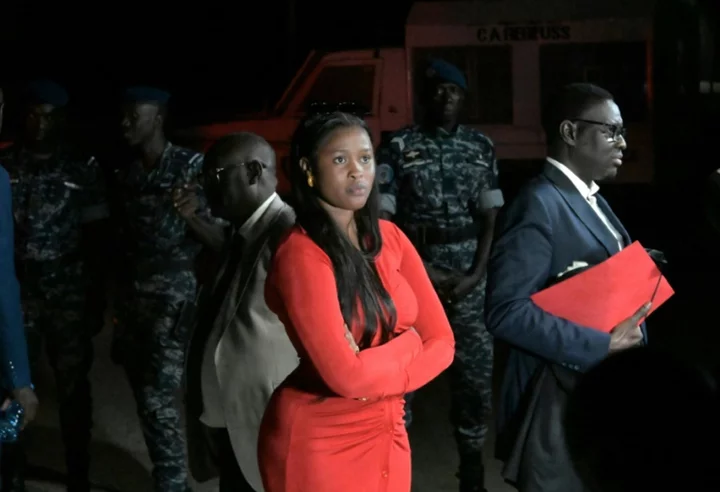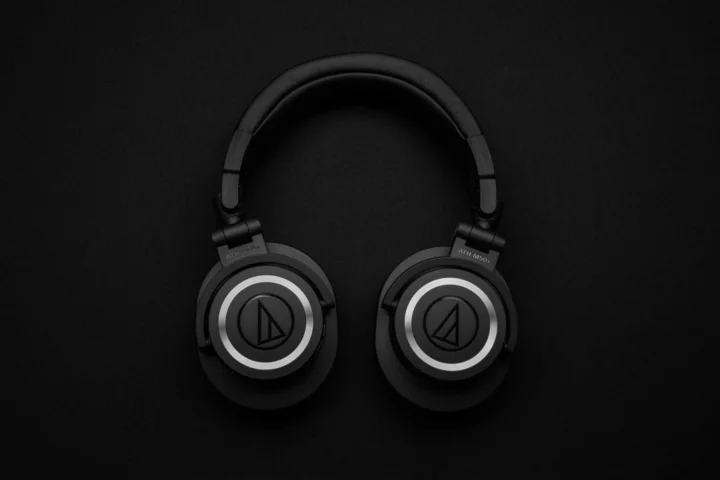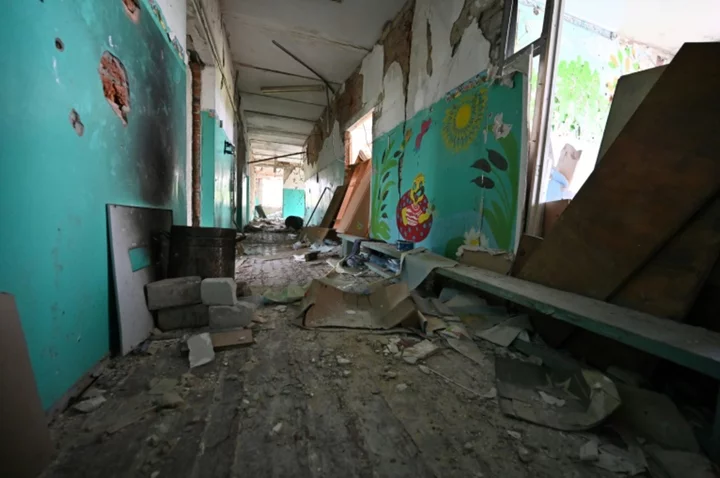A rape case that has pitched a 23-year-old woman against Senegal's most prominent opposition leader has dismayed feminists in the country, fearing their cause has suffered an enduring blow.
After a trial marked by politicisation and salacious headlines, the West African state is bracing for potential violence on Thursday when the verdict is expected to be announced.
The case revolves around Ousmane Sonko, a firebrand politician who has drawn a huge following among young people with attacks on Senegal's elite.
The 48-year-old is accused of raping beauty salon employee Adji Sarr and issuing death threats against her.
He denies the allegations and in the run-up to Thursday's hearing called on the public to protest en masse.
Some feminists say the two-year-old case has dodged a rare chance to advance the rights of victims of sexual violence.
But others worry it marks a step backward in the long struggle for empowerment.
"This trial is a huge setback that will leave its mark on the history of women's rights," said Aminata Libain Mbengue of the Feminists' Network of Senegal.
- Threats -
"There has been no debate on consent and sexual violence -- the political aspect immediately dominated."
Sonko says the case is part of a plot by President Macky Sall to scuttle his ambitions for the 2024 elections.
His critics call him a rabble-rouser who is seeking to evade justice. When Sonko was charged in 2021, riots and looting erupted that left a dozen people dead.
Sarr was forced into hiding after facing relentless threats and insults.
Now, she only leaves her home under police escort.
"Whatever the verdict, Adji Sarr has already been given life imprisonment -- she can no longer live in Senegal, is threatened with death and has lost all freedom," Mbengue said.
Activists say the trial has left the rights of women and victims of sexual violence either drowned out as an issue or sidelined.
One reason is that campaigners have been threatened by Sonko supporters, but the cause has also failed to gain much help from Sarr herself, they say.
Her appearance has been widely attacked as vulgar and her testimony as crude, prompting headlines of "X-rated" and "like a porn movie" in this conservative Muslim country.
- 'Theatre' -
"From the very beginning, my problem has been the girl's attitude -- rape is being trivialised," said Amy Wane, a 27-year-old journalist.
"Rape is a very painful ordeal -- women who are victims are ashamed and hide their faces.
"Adji Sarr, on the other hand, flaunts herself on social networks, comes to court in a tight red dress, and puts forward no proof (of rape) whatsoever".
Nafissa Fall, 27, said: "These days, when you want to insult a woman, you say you hope she has a child like Adji Sarr -- the image of women has taken a hit."
But Die Maty Fall, another journalist, said Sarr had "done well to put into words what she has been through."
"Political figures are going to have to be more careful to ensure that what they say in public is consistent with their attitude in private," she said.
Sociologist Rosalie Aduayi Diop, a specialist in sexual violence, described the trial as "theatre."
It showed the limits of the justice system, with "untruths from all sides," and increased mistrust of the institutions, she said.
- 'Culture of silence' -
"Beyond the issue of rape, the big regret is the way that a woman was instrumentalised for political ends," she said.
Diop acknowledged some advances for Senegalese women in recent years. They are better represented in politics since a gender quota was passed for parliament, and rape was criminalised in 2020.
But in Senegal, rape remains a taboo. Most victims are unaware of the law and the "culture of silence" persists, according to Diop.
"We always try to work things out within the family", she said, both to preserve family ties and to avoid stigmatising victims.
The women interviewed by AFP said Sarr's testimony on the stand failed to dispel all doubts about the allegations against Sonko.
But they and others were united in their condemnation of Sonko's language, saying it normalised sexual violence and denigrated his accuser.
"If I wanted to rape a woman, I wouldn't choose a brain-damaged monkey," he said.
"Using such a description of a Senegalese woman is degrading and the worst kind of insult at a time when black people all over the world are fighting against prejudice and racist violence," the Feminists' Network said.
amt/prc/ri/jm









